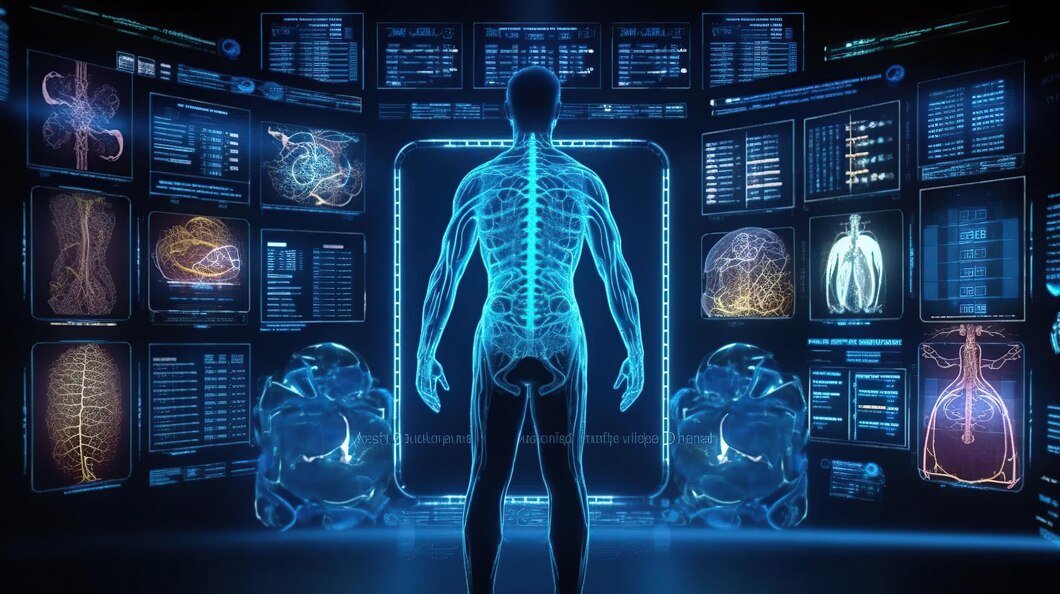Welcome to the amazing world of weight reduction, where health and science converge to change people’s bodies and lives. The complex science behind weight loss is deconstructed in this essay. Knowledge of fundamental ideas will enable you to make wise decisions, steer clear of diet fads, and start along a long-term route to a fitter, healthier version of yourself. Let’s explore the science behind weight loss and discover the keys to vanishing those excess pounds.

1. Metabolism: The Secret to Losing Weight
Metabolism is the fundamental science behind weight loss. The body’s engine, metabolism, is what turns food into energy. Your body burns calories at rest based on how quickly this occurs. It’s critical to comprehend your metabolism and learn how to boost it for effective calorie burning to jumpstart your weight reduction quest.
2. The Calorie Dilemma: Judging Input Against Output
The game of calories is at the core of weight reduction; it’s about striking a balance between intake and output. When you eat less than your body requires, it will use fat reserves as fuel. However, it’s not enough to cut calories—the quality counts. Choose foods high in nutrients to fuel your body and help you create a calorie deficit.
3. The Endocrine Players in Hormones and Hunger
Hormones, the chemical messengers that control some biological activities, are closely related to the science behind weight loss. The hunger hormones leptin and ghrelin are essential for controlling metabolism and appetite. Knowing how these hormones affect your eating patterns, you may make conscious food decisions and maintain a long-term weight loss program.
4. The Protein Power: Essential Components for Losing Weight
Protein is a hidden weapon in the science of weight loss, not just for bodybuilders. Research has demonstrated that a high-protein diet can increase metabolism, decrease hunger, and maintain lean muscle mass. Increase the effectiveness of your weight reduction attempts by including lean protein sources in your meals.
5. Workout Alchemy: Converting Fat into Strength
In the science of weight loss, exercise is the magic wand that releases stored fat into energy. Every type of exercise, from strength training to cardio, has a specific function in the weight reduction process. To incorporate fitness into your routine in a fun and sustainable way, find something you like doing.
6. Sleep: The Quiet Factor in Losing Weight
Outside of the waking hours, there is science behind weight loss. A healthy sleep schedule quietly helps you lose weight. Hormone balance is upset when you don’t sleep enough, increasing desires and undermining your efforts. Make getting a good night’s sleep a priority to help your body’s natural processes for controlling weight.

7. Gut Health: The Impact of Microbes
The microbiome, the billions of microorganisms living in your digestive tract, is becoming increasingly important in helping you control your weight. According to scientific research, a diversified and well-balanced microbiome positively impacts metabolism and lowers inflammation. Consuming meals high in fiber and probiotics can help to maintain a healthy gut environment.
8. Mindful Eating: The Mentality of Losing Weight
The relationship between the mind and body is a key component of the science behind weight loss. Emotionally and stress-driven eating can ruin even the most carefully thought-out diet plans. On your weight reduction journey, practicing mindful eating, being aware of hunger cues, and developing a healthy connection with food may be life-changing.
9. Water: The Silent Warrior
Water is the unsung hero of weight loss science. Proper hydration promotes digestion, speeds metabolism, and even helps reduce calorie consumption. Make water your preferred beverage, and you’ll see its influence on your weight reduction attempts to be subtle and significant.
The science behind weight loss is a complex web that includes hormones, metabolism, diet, exercise, sleep, gut health, and psychology. You may start your road to a better, more energetic life by comprehending and adopting these ideas. There is no one-size-fits-all strategy, so pay attention to your body, make sustainable decisions, and acknowledge your little accomplishments along the road. In addition to being a science, losing weight is a transforming, personal experience that leads to a better version of yourself.
FAQs
Q1: According to the science behind weight loss, can some meals increase metabolism?
Of course! Certain foods, such as green tea and hot peppers, include ingredients that can momentarily speed up your metabolism. Even though the results might not be noticeable, including them in your diet will help you burn more calories.
Q2: How important is exercise in the science behind weight loss?
Consider exercise as your body’s method of going back to the beginning. It does more for you than only burn calories; it also elevates your mood, enhances your sleep, and tones your body. Discover your passions and use them as a hidden weapon to help you lose weight.
Q3: Is hormones indeed impacting weight reduction, or is this just a myth?
In the weight loss symphony, hormones function similarly to conductors. The hunger hormones ghrelin and leptin are important. You can navigate the science behind weight loss more successfully and make better decisions if you understand their dance.
Q4: Is calorie tracking a necessary part of weight loss?
Of course! Although counting calories is useful, it’s not the only way to lose weight. To establish a sustainable weight reduction strategy, no exact calorie counting is required when focusing on nutrient-dense meals, mindful eating, and portion management.
Q5: What effect does sleep have on weight loss science?
Think of sleep as the unsung hero of losing weight. Good sleep lowers stress, controls hormones, and suppresses cravings. It matters how many hours you sleep and how well you sleep. Make sleep a priority, and you’ll find it becomes a silent but effective friend on your weight reduction path.
Q6: Is it possible to lose weight by eating a high-protein diet?
Of course! The science behind weight loss has a superhero named protein. It increases metabolism, helps maintain muscular mass, and keeps you satisfied. To lose weight effectively, include lean protein sources like fish, poultry, and plant-based diets.
Q7: Is there a link between losing weight and intestinal health?
Of course! Your digestive system and metabolism are impacted by the diverse community of microorganisms in your gut. Keeping your gut healthy with meals high in fiber and probiotics can favor weight reduction scientifically, making it a crucial part of your wellness journey.

